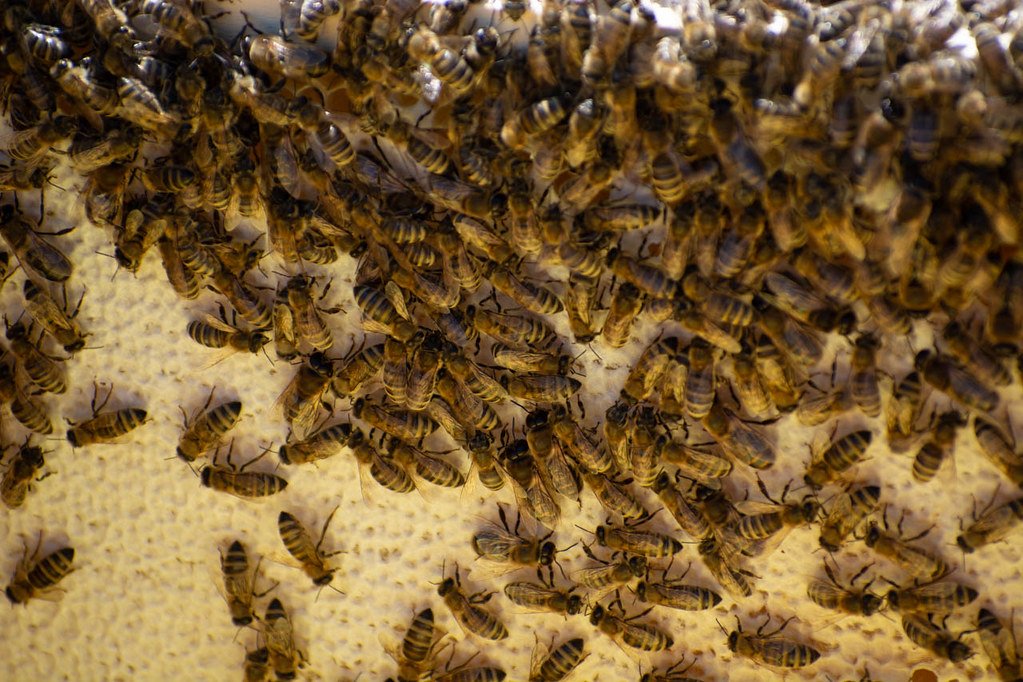Bees are naturally inclined to search for spaces that provide safety, warmth, and protection from environmental factors. Outdoor sheds often become attractive because they mimic the characteristics of hollow trees, offering a secure structure against predators. When homeowners neglect minor maintenance, tiny gaps and cracks in wooden panels or roofing create easy entry points. To discourage bees effectively, it becomes essential to first understand why these insects select sheds over other possible nesting areas.
Most bees thrive when the environment provides proximity to flowering plants, water sources, and minimal human disturbance. Sheds in gardens usually meet these conditions perfectly, allowing bees to establish colonies with minimal resistance. Furthermore, stored items like wood piles or boxes inside sheds add extra insulation that enhances nesting suitability. Therefore, before developing strategies to discourage bees naturally, homeowners must identify and minimize the conditions that make sheds so appealing.
Understanding their attraction also helps maintain balance because bees are beneficial pollinators, essential for supporting surrounding ecosystems. Thus, discouragement must focus on prevention rather than destruction, ensuring homes remain free from infestations while still supporting natural bee populations. When handled thoughtfully, homeowners can create unwelcoming environments in sheds without harming the crucial role bees play in nature.
Natural Shed Preventive Measures
The first step to discourage bees involves maintaining outdoor sheds through consistent repairs and natural deterrents that reduce attractiveness. Cracks, openings, and ventilation gaps often act as entry points that must be sealed with durable materials. Bees generally prefer undisturbed areas, so routinely organizing shed interiors also decreases the likelihood of colonies developing unnoticed. Cleaning eliminates hidden spaces where bees might settle, making natural prevention an ongoing responsibility rather than a single action.
Another useful approach includes incorporating natural scents that bees dislike, such as peppermint, citronella, or eucalyptus oils. Applying these substances near entrances, roof edges, and wooden panels discourages bees without introducing harmful chemicals into the environment. Gardeners can also plant herbs like mint or lemongrass around sheds, creating a natural aromatic barrier against unwanted nesting. This dual approach maintains shed utility while blending with existing landscaping, ensuring safety for pollinators and humans simultaneously.
Homeowners must also consider sunlight exposure because bees often avoid overly hot or brightly lit environments for nesting. Strategically trimming trees or repositioning sheds in well-lit areas can discourage bees while promoting healthier ventilation indoors. These natural preventive techniques not only discourage bees but also maintain ecological harmony, showing how small steps create lasting protection. Maintaining consistency with such practices ensures sheds remain practical storage areas rather than potential habitats for bee colonies.
Safe Strategies to Discourage Bees Without Harm
Successfully discouraging bees requires approaches that are both effective and environmentally responsible, ensuring pollinator populations remain unaffected. One natural strategy involves using sound and vibration, as bees often avoid constant movement and audible disturbances. Installing small wind chimes or ensuring regular activity around sheds helps discourage bees from settling in undisturbed spaces. Unlike chemical repellents, these approaches preserve natural balance while keeping human environments safer and free from infestations.
Moisture control plays another critical role because bees prefer areas where they can easily access water resources. Draining nearby standing water and redirecting rainfall away from sheds reduces the environmental appeal for nesting colonies. Similarly, reducing clutter both inside and around sheds eliminates shadowed corners where bees typically start building combs unnoticed. Over time, these consistent actions reduce shed attractiveness and provide a natural solution to discourage bees without intervention.
Importantly, homeowners should remain patient since natural methods may require time before visible results fully discourage bees. However, consistent application ensures long-term success without introducing hazards associated with chemical deterrents or harmful extermination techniques. Many communities advocate for approaches rooted in ecological preservation, underscoring the importance of protecting pollinators while maintaining human convenience. Natural strategies provide peace of mind by combining safety, effectiveness, and ethical responsibility toward both nature and personal property.
Ethical Approaches and Professional Assistance
When preventive efforts alone are not sufficient, homeowners may need professional support to handle persistent bee issues. In such situations, choosing experts who prioritize safe and ethical bee removal practices ensures colonies are relocated rather than exterminated. These professionals understand bee behavior thoroughly, using humane methods that protect pollinators while maintaining safety within residential areas. Their expertise proves especially valuable when colonies have grown large or established combs in inaccessible parts of outdoor sheds.
Hiring specialists also prevents unnecessary risks because direct interaction with bees can provoke stings and defensive swarming behavior. Professionals equipped with protective gear and relocation equipment ensure safety while preserving bee populations essential for environmental sustainability. Many reputable services also provide follow-up guidance, helping homeowners implement preventive measures to discourage bees after removal. This dual benefit creates a balanced approach that aligns property protection with ecological responsibility, benefiting both humans and nature.
Additionally, seeking professional help offers peace of mind since improperly handled removals may result in recurring infestations. Bees often leave lingering scents that attract future colonies unless thoroughly addressed by skilled removal experts. Therefore, partnering with ethical professionals becomes not only a matter of safety but also a long-term preventive solution. This collaboration encourages harmony between residential needs and ecological stewardship, ensuring sheds remain free from bees naturally and responsibly.
Long-Term Natural Maintenance to Discourage Bees
Preventing future nesting requires consistency because bees are naturally resourceful and persistent when searching for suitable habitats. Seasonal inspections of outdoor sheds ensure new vulnerabilities are addressed before colonies find opportunities to settle undetected. Over time, untreated wood surfaces may crack or deteriorate, creating potential entry points that require reinforcement with eco-friendly sealants. These maintenance practices act as long-term barriers while aligning with natural strategies that discourage bees without resorting to harmful substances.
Landscaping choices also influence shed attractiveness, as surrounding flowering plants may unintentionally increase bee activity nearby. While flowers are important for pollination, placing them at a reasonable distance discourages bees from targeting sheds directly. Maintaining this balance allows gardens to thrive while reducing risks of colonies forming in unintended areas of outdoor spaces. Furthermore, rotating the placement of aromatic plants known to deter bees can strengthen natural defenses through seasonal adjustments.
Consistently integrating preventive routines eventually discourages bees from considering sheds as potential nesting environments altogether. Homeowners benefit not only from secure, functional sheds but also from supporting ecological balance in their surrounding gardens. This proactive approach demonstrates that discouragement can be gentle, natural, and respectful toward bees’ crucial role in pollination. Ultimately, achieving harmony requires recognizing that long-term success lies in integrating human convenience with ecological preservation through thoughtful, natural strategies.


